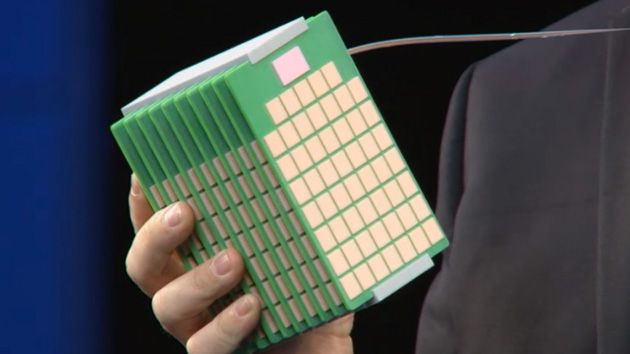HP’s Tech Could Give Genome Analysis the Leap It Desperately Needs

HP unveils The Machine, a processing architecture capable of processing 160 petabytes of data in 250 nanoseconds, along with it igniting hopes of many genetcist’s to be one day able to analyze whole genomes at the click of a button.
Still in its concept stage and unimaginatively called The Machine, it is designed to cope with the flood of data that today’s data centers are forced to handle. It is a complete rethink of the way today’s processors handle processing and data, with special purpose cores or clusters connected with photonics combined with memristors instead of RAM. Memoristors are another one of HP’s breakthroughs, where one memristor can process data as well as store data indefinitely, even without power and can be built in three-dimensional shapes. Something like this can theoretically process 160 petabytes of data in 250 nanoseconds, while using 80 times less energy. This is a huge leap over current genome processing champion, the supercomputer Beagle which analyses 240 whole genomes in two days.
HP has big hopes for this technology, with plans to shrink it down to laptops and smartphones. Handling this much processing power requires a completely different operating system, something that HP is working in parallel with the hardware.
Wait, don’t just yet pull out your grant money, The Machine is still in concept stage and will see the light of day somewhere in 2015. The first devices using this architecture won’t come out until 2018. Looking at the promising potential of this technology, it could be worth the wait.


